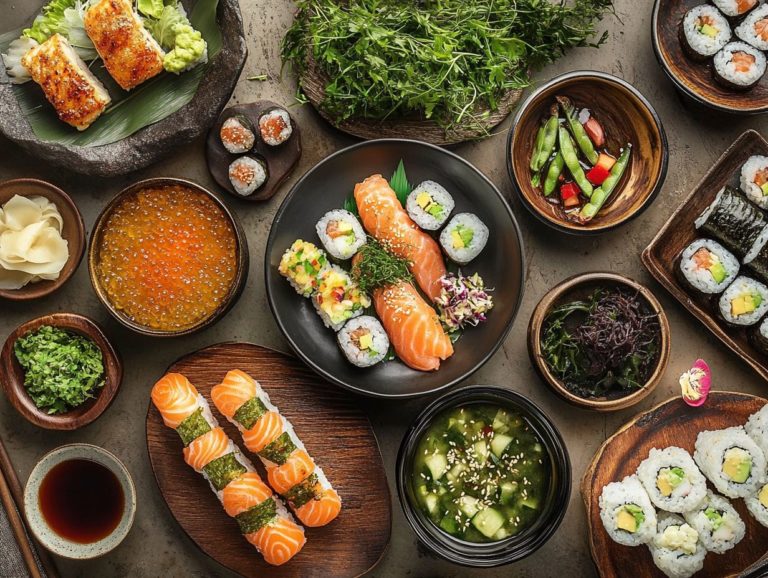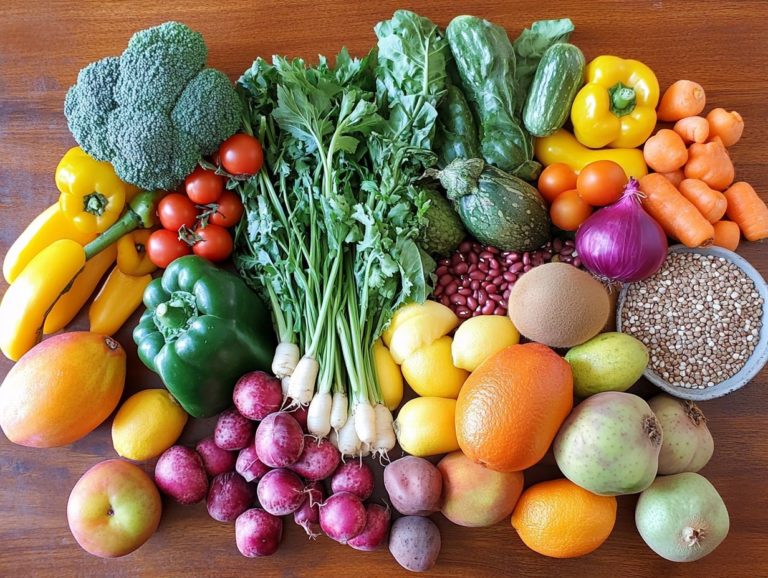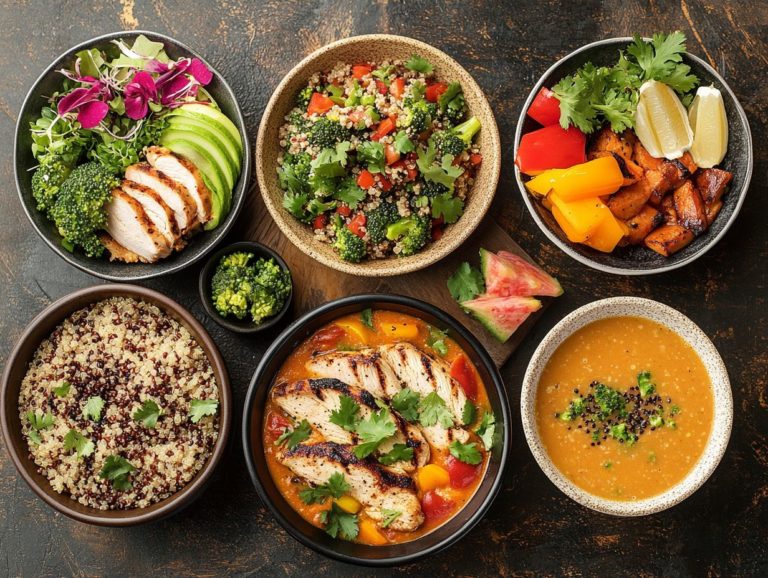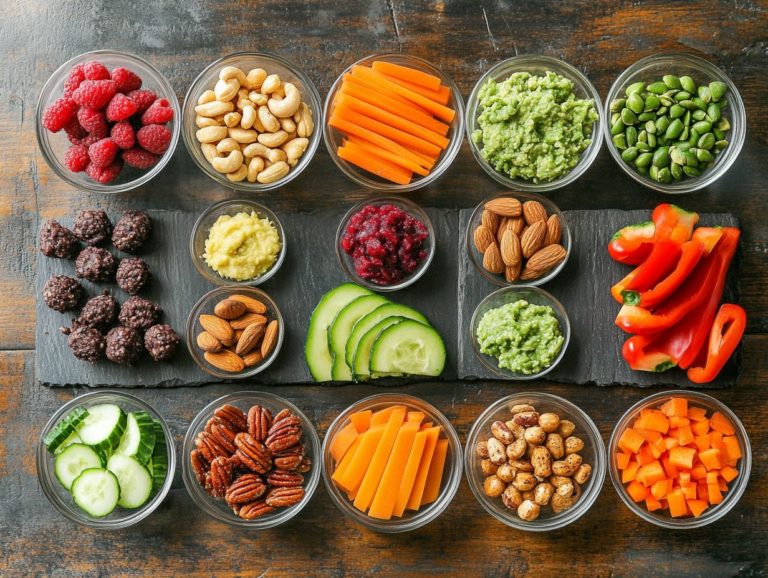Understanding the Whole30: What to Expect
The Whole30 program has garnered attention as a transformative approach to nutrition and wellness. It offers you a unique opportunity to reset your eating habits and cultivate a deeper relationship with food.
This article delves into what the Whole30 actually entails, the benefits it can bring, and essential considerations to keep in mind. Get ready for a thrilling 30-day journey with clear guidance at every step!
It also explains how to keep up healthy habits after the program. Whether you’re contemplating trying Whole30 or seeking ways to elevate your experience, this article is designed to support you every step of the way.
Contents
Key Takeaways:
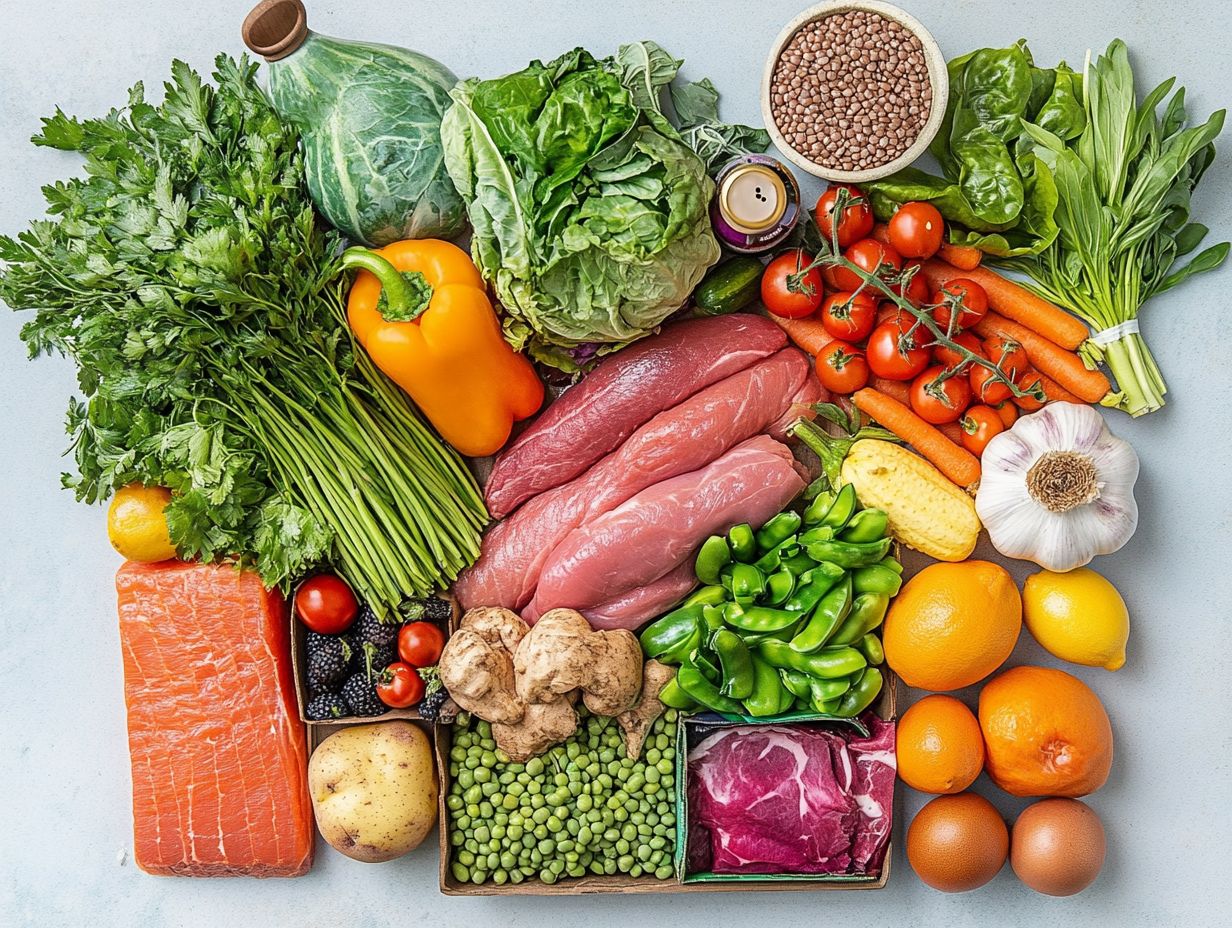
Prepare for the Whole30 by understanding the program and its potential benefits and risks. Stock up on approved foods and have meal ideas ready for a successful Whole30 experience.
During the Whole30, expect physical and emotional changes. Use tips for success to maintain healthy habits after the program.
What is the Whole30?
The Whole30 is a carefully designed 30-day nutritional reset program. It helps you eliminate food groups that could negatively impact your health while fostering a more positive relationship with food.
Developed by Melissa Urban and Dallas Hartwig, this program focuses on replacing dietary triggers from the Standard American Diet with healthy foods that promote overall well-being.
During this transformative period, you are encouraged to cultivate self-awareness. You will confront emotional challenges and identify food cravings that may have previously slipped under your radar.
Explanation of the Program
The Whole30 program invites you to eliminate specific food groups for 30 days. This approach helps you identify food triggers and attain a sense of food freedom.
Throughout this month, you’ll remove sugar, grains, dairy, legumes, and alcohol common culprits that often lead to digestive discomfort.
Instead, your focus will shift to whole, unprocessed foods, including fresh fruits, vibrant vegetables, quality meats, seafood, and healthy fats like avocado and olive oil.
This process aids in recognizing how certain foods influence your well-being. It fosters a deeper understanding of your dietary needs, paving the way for healthier eating habits that last well beyond 30 days.
Benefits of the Whole30
The Whole30 program presents an impressive range of benefits. It can profoundly elevate your physical and mental well-being, from boosting your energy levels to easing digestive concerns.
This program acts as a transformative tool for anyone looking to reset their health. It allows you to pinpoint food triggers and eliminate nagging symptoms that disrupt your daily routine.
With the backing of a supportive community, you’ll find the motivation and encouragement needed to navigate your wellness journey with confidence.
Health Improvements and Potential Risks
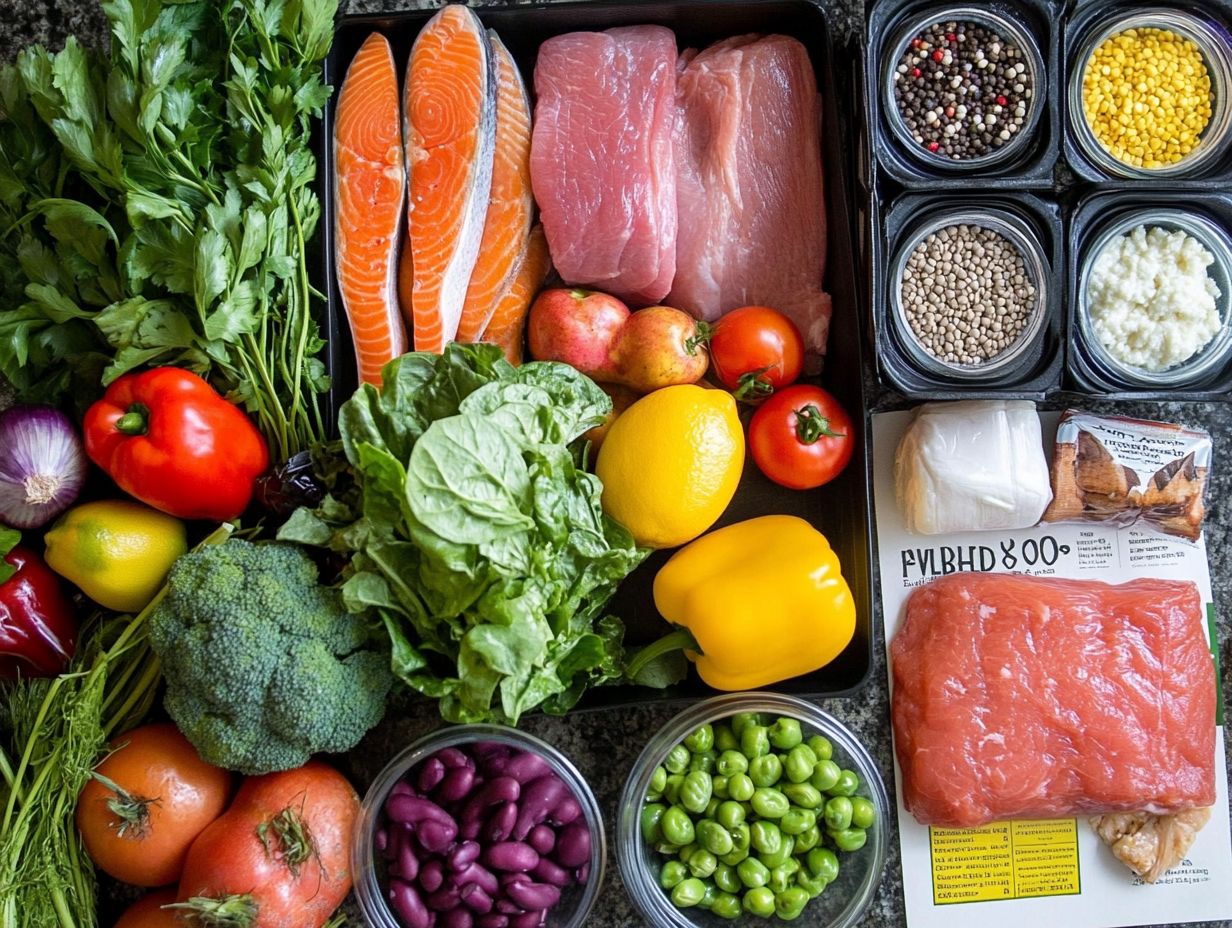
Engaging in the Whole30 can significantly improve your health. You may resolve chronic issues, boost your energy levels, and enhance your digestive well-being.
You might experience a remarkable reduction in symptoms like bloating, headaches, and fatigue. This paves the way for a more vibrant daily existence.
Many participants report gains in mental clarity and mood stabilization. This contributes to an overall sense of wellness that feels invigorating.
However, it s essential to recognize the potential risks that can accompany such dietary shifts. Cutting out entire food groups may inadvertently lead to nutrient deficiencies.
You may also encounter emotional discomfort from cravings or withdrawal symptoms as your body adjusts to this new eating pattern.
In conclusion, the Whole30 program offers a structured way to reset your eating habits and improve your relationship with food. Start your Whole30 today to unlock your best self!
What to Eat on the Whole30
Eating on the Whole30 is a journey defined by a disciplined yet rewarding approach to nutrition. It revolves around whole foods and intentionally excludes grains, dairy, legumes, and added sugars. This program aims to cultivate food freedom and healthier eating habits.
Immerse yourself in a diverse array of approved Whole30 foods, such as vibrant vegetables, fresh fruits, quality meats, seafood, and nourishing healthy fats.
Honing your meal planning skills and mastering effective grocery shopping techniques will help you succeed. Curate a comprehensive food list to ensure you have all the essential ingredients to flourish during your 30-day reset.
Approved Foods and Meal Ideas
Whole30-approved foods are important for your success. They include a diverse range of vegetables, fruits, proteins, and healthy fats that support optimal nutrient intake. These foods help you eliminate processed ingredients and added sugars while fostering a deeper understanding of nutrition.
Fresh produce think leafy greens, sweet potatoes, and avocados can serve as the foundation for delicious dishes. For protein, consider options like grass-fed beef, wild-caught fish, and free-range chicken, which provide essential building blocks for muscle repair.
Incorporating healthy fats from nuts, seeds, and olive oil helps you feel satiated and energized throughout the day. For meal inspiration, imagine a hearty salad with grilled chicken and an olive oil vinaigrette or a vibrant stir-fry with colorful vegetables and shrimp, perfectly paired with cauliflower rice.
Preparing for the Whole30
Preparing for the Whole30 demands careful planning and a firm commitment to transforming your lifestyle. This ultimately enhances both your physical and mental well-being.
To ensure success, build a strong support network, familiarize yourself with the program details, and establish actionable health habits to help you stick to the guidelines.
Your preparation might involve organizing meals, clearing out non-compliant foods (those not allowed on Whole30) from your pantry, and crafting strategies to manage cravings and emotional hurdles along the way.
Tips for Success
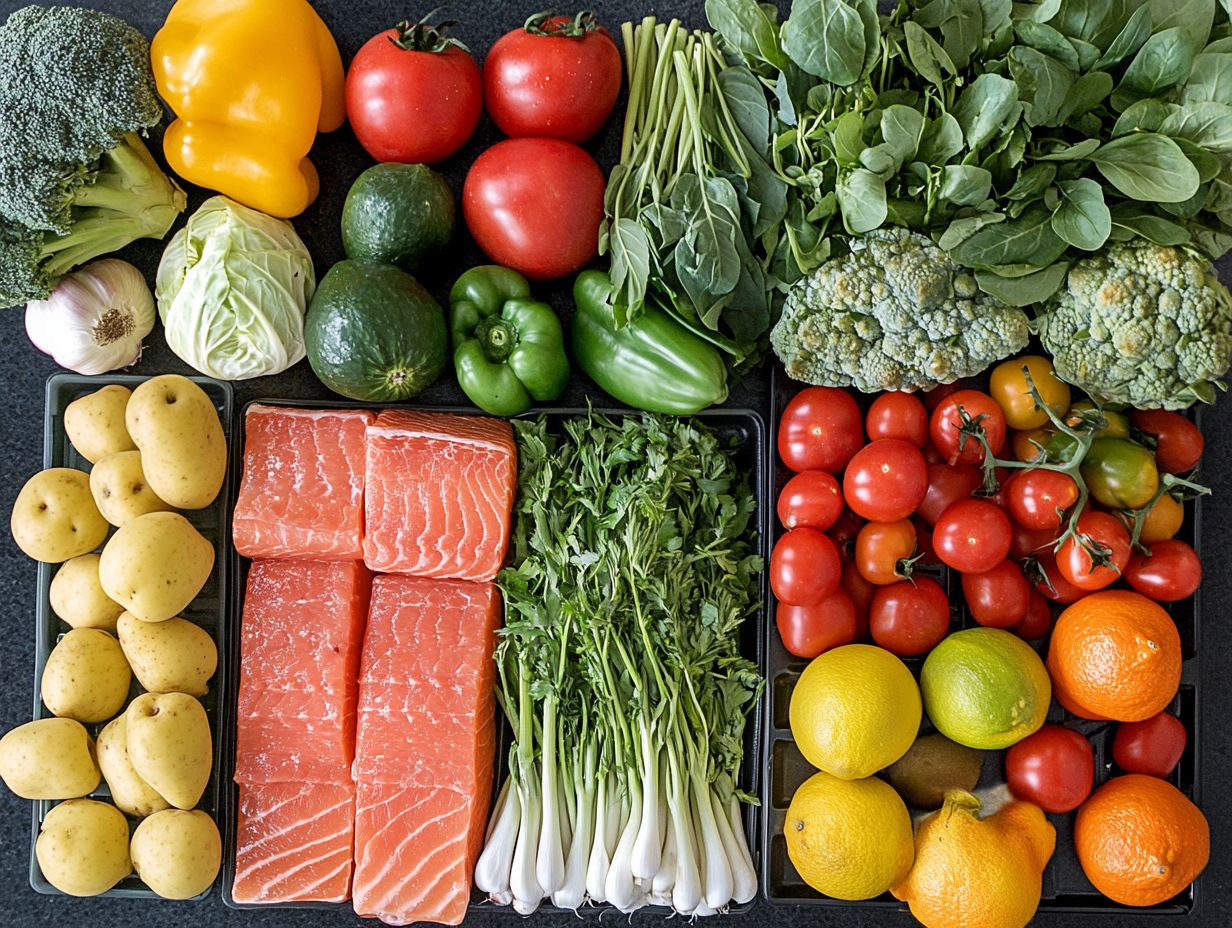
To truly succeed on the Whole30, concentrate on practical tips that help navigate emotional hurdles and simplify your grocery shopping experience.
In addition to these foundational strategies, building a robust support system is essential. Lean on friends, family, or engage with online communities. Sharing experiences can significantly enhance your motivation.
Finding satisfying substitutes for your favorite snacks is key to curbing pesky cravings. Planning meals in advance ensures your choices align seamlessly with Whole30 guidelines.
When grocery shopping, craft a detailed list based on your week s meal plan to streamline the process and minimize impulse purchases.
Additionally, keep a journal to track your feelings and progress throughout the program. This offers valuable insights and fosters a profound sense of accomplishment.
What to Expect During the Whole30
During the Whole30, get ready to navigate a whirlwind of physical and emotional changes, especially in those initial days often outlined in the Whole30 Timeline.
It’s not uncommon to experience discomfort, like headaches or digestive issues, as your body adapts to the absence of specific food triggers. This phase cultivates a heightened sense of self-awareness, allowing you to recognize your cravings and emotional reactions tied to food.
Ultimately, this journey leads to a profound understanding of your eating habits and how they influence your overall well-being.
Life After the Whole30
Life after the Whole30 ushers in the reintroduction phase, a pivotal moment where you carefully reintroduce eliminated food groups while observing your body s responses.
This method shows you how different foods affect your energy, cravings, and health. It enables you to tailor your dietary choices to align seamlessly with your long-term health aspirations.
By focusing on non-scale victories like enhanced mood and increased energy you reinforce the positive lifestyle changes that can lead to lasting transformation.
Maintaining Healthy Habits
After completing Whole30, you re on a great path! Let s make sure you keep the positive momentum going. It’s essential for you to maintain healthy habits that reinforce the positive changes you’ve experienced during the program. Moderation will play a pivotal role in ensuring your long-term success.
To build on this solid foundation, incorporate a variety of healthy foods that provide lots of nutrients while being mindful of your portion sizes. This approach aligns with your body s nutritional needs and promotes a balanced relationship with food.
Don’t shy away from exploring new recipes and experimenting with wholesome ingredients. Keeping your meals exciting is key to preventing dietary boredom. Set achievable goals like cooking more at home this can turn into a fun and rewarding experience!
Ultimately, it s crucial to implement lifestyle changes that lead to lasting well-being, all without the feeling of deprivation or overwhelm. Don t wait to start your new healthy habits your well-being deserves it!
Watch this video for practical tips on maintaining your wellness journey post-Whole30.
Frequently Asked Questions
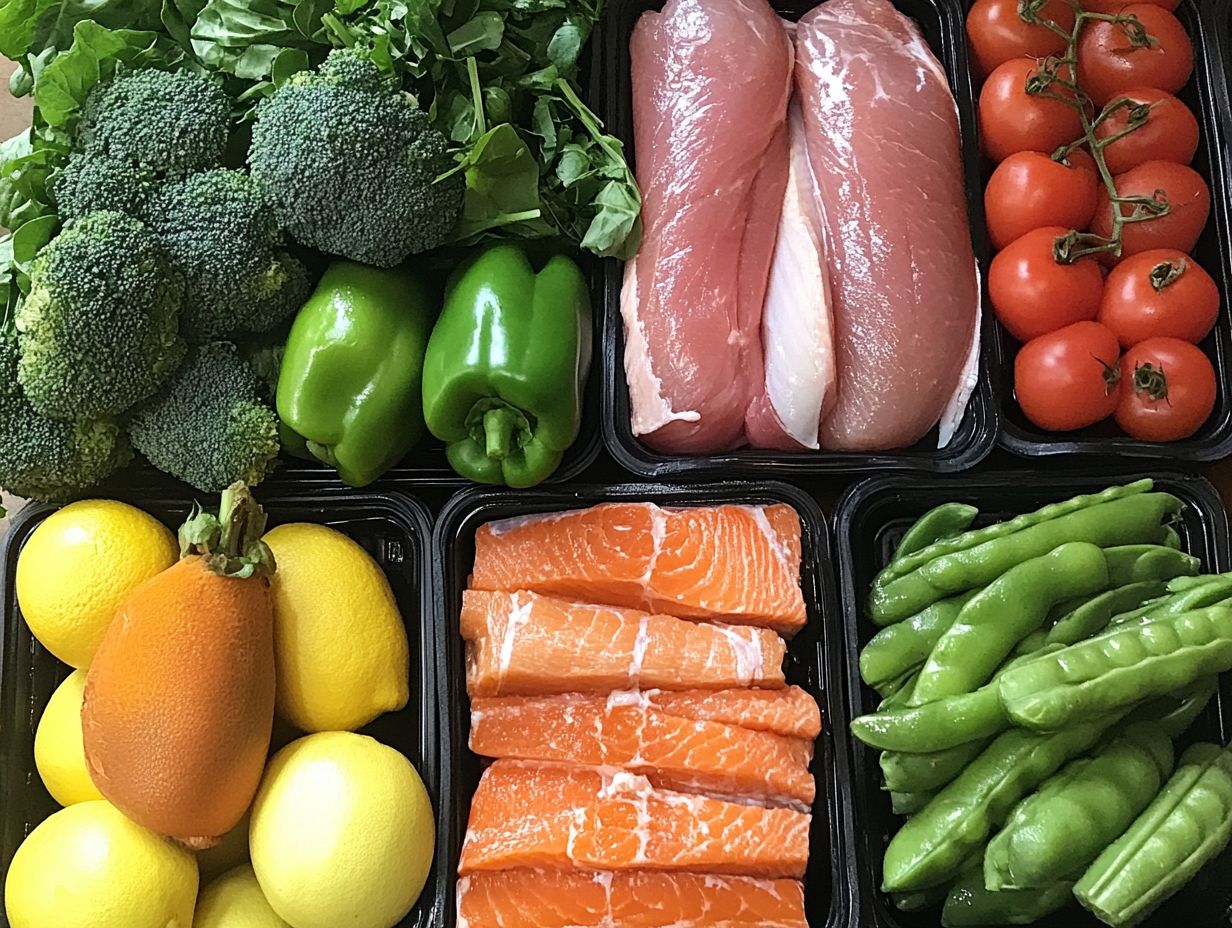
What is the Whole30 Program?
The Whole30 Program is a 30-day dietary reset that eliminates certain foods and food groups to help identify food sensitivities, improve digestion, and reset eating habits.
Why is it called the Whole30?
The program is called the Whole30 because it is a 30-day commitment to eating whole, unprocessed foods. This means eliminating processed foods, added sugars, alcohol, grains, legumes, and dairy for 30 days.
What can I eat during the Whole30?
You can eat a wide variety of whole, unprocessed foods including vegetables, fruits, lean proteins, healthy fats, and nuts and seeds. These foods should be in their most natural form and not contain any added sugars or preservatives.
What should I expect during the Whole30?
During the Whole30, you may experience changes in your energy levels, digestion, cravings, and sleep patterns. These changes are normal and a result of your body adjusting to a new way of eating.
Can I drink alcohol during the Whole30?
No, alcohol is not allowed during the Whole30. This includes all types of alcohol, even red wine and beer. However, you may reintroduce it after the 30 days are over.
Can I modify the Whole30 to fit my dietary restrictions?
Yes, the Whole30 program can be modified to fit certain dietary restrictions, such as vegetarian or vegan diets. However, it is important to consult with a healthcare professional or registered dietitian before making any modifications to ensure you are still meeting your nutritional needs.

